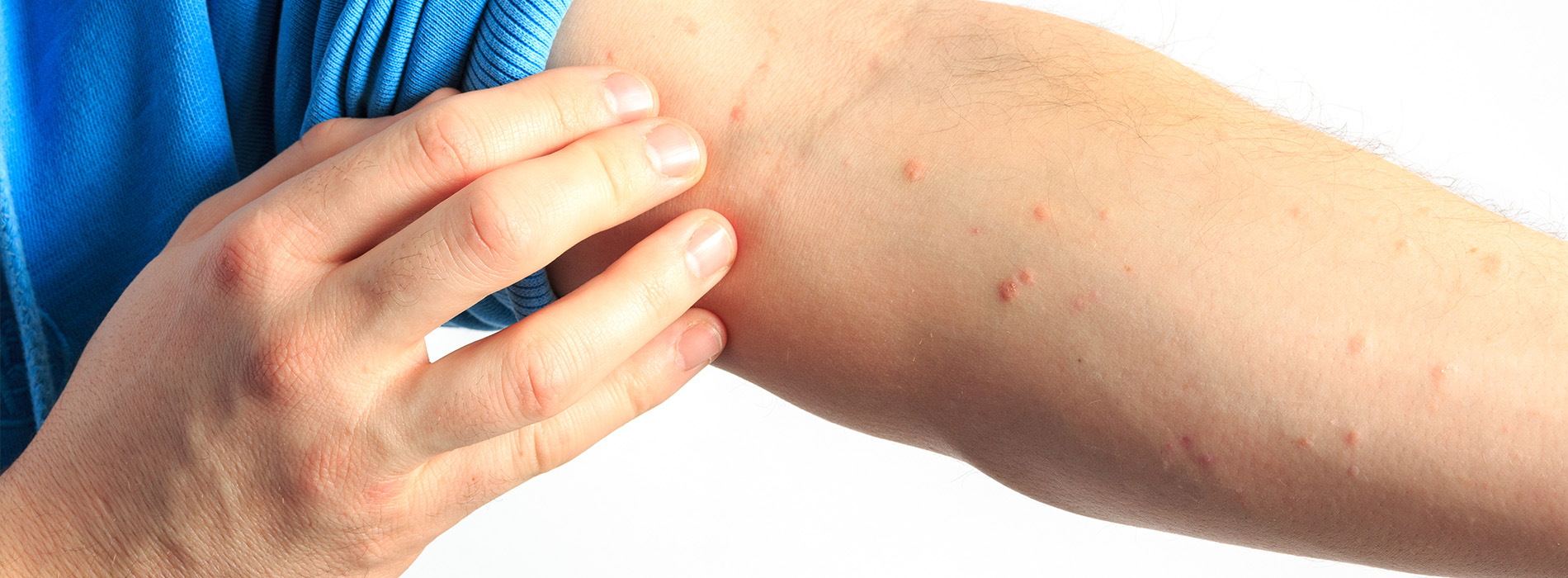
At Advanced Allergy & Asthma Centers, we provide skilled and compassionate care to diagnose the underlying causes of hives, resolve the symptoms, and help prevent further outbreaks.
Hives, also known as urticaria, are a common skin condition affecting one in five people at some point in their lives. Appearing as slightly raised welts on the skin, they may look pale or red in color and feel quite itchy. Hives can emerge alone or in clusters and vary in size from freckle-size bumps to large areas the size of a dinner plate. While mild cases are considered harmless, hives require immediate attention when associated with a serious allergic reaction and throat swelling.
Acute Hives
In many cases hives occur as the result of an allergic reaction commonly triggered by exposure to one of the following:
Chronic Hives
Chronic hives refer to recurring or ongoing cases that last six weeks, continue for several months, or go on for years. Although chronic hives are rarely life threatening, they can be very frustrating and require expert care to treat.
Inducible Hives
Triggered by physical factors, inducible hives occur less frequently than allergic outbreaks and are typically attributable to one of the following factors:
Hives are usually diagnosed based upon the symptoms and a clinical examination. However, testing may be recommended if the hives do not resolve within a certain period of time. If allergies to certain foods, medications, or other triggers are suspected, skin testing may be performed. For hives that do not resolve, blood tests can reveal useful information about underlying diseases or contributing conditions. In certain cases, a skin biopsy is helpful.
Based on the severity and frequency of the outbreaks, treating hives can include a combination of self-care to avoid triggers and medications.
Contact Us